At a time where humanity faces a stark choice between breakdown and breakthrough, Our Common Agenda proposes a path forward, centered around a renewal of our social contract, greater solidarity with young people and future generations, and a new global deal.
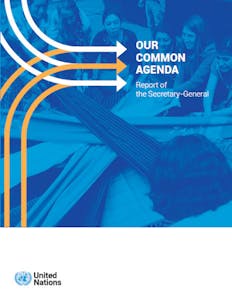
In marking the 75th anniversary of the United Nations, world leaders asked Secretary-General Guterres to set out a vision for the future of global cooperation and how to reinvigorate multilateralism to tackle the interconnected challenges of the 21st century.
Our Common Agenda, the UN Secretary-General’s landmark report presented at the 75th session of the General Assembly, was supported by the United Nations Foundation and a network of partners who helped to catalyze inputs from UN Member States, global thought leaders, young leaders, activists, and a broad spectrum of civil society and private sector voices.
At the United Nations Foundation, we are committed to fostering collaboration across generations to address humanity’s most pressing current and future challenges. We continue to advance the needs of next and future generations prioritized in Our Common Agenda through the Our Future Agenda program.
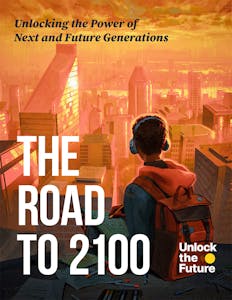
Our Future Agenda bridges the gap between traditional international structures and the spaces where young people are mobilizing for a better tomorrow, offering a unique platform for young innovators, entrepreneurs, and champions to reimagine the UN for 21st century needs.
The program hosts the Unlock the Future coalition, an alliance of the world’s largest youth-focused organizations with a shared reach of almost one billion people globally. The Road to 2100 is the coalition’s 5-year Action Plan, drawing from the shared wisdom of young changemakers and experts to drive collective action, financing, and intergenerational solidarity for a better world for next and future generations.
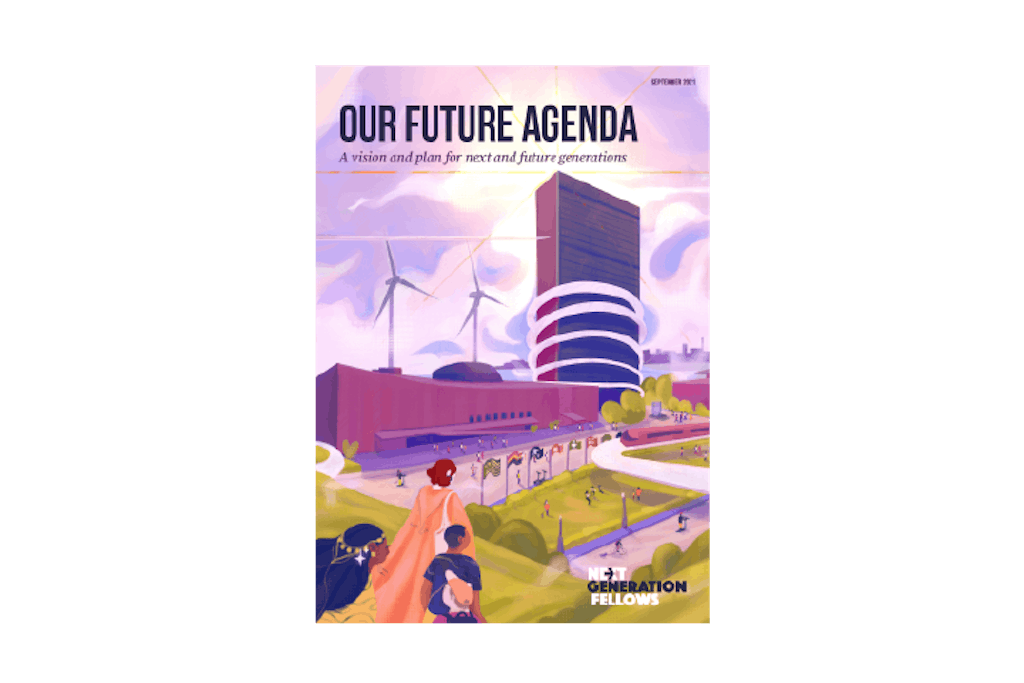
In line with his call for young people to be designers of their own future, the Secretary-General asked for young people to help to shape Our Common Agenda.
In 2021, the UN Foundation hosted a global group of eight Next Generation Fellows, who worked with the world’s young thinkers, activists and leaders to identify solutions to the biggest challenges facing next and future generations. They organized open space dialogues, a series of national conversations, and more, to hear from young people from all backgrounds.
As well as helping to shape the Secretary-General’s recommendations on renewed intergenerational solidarity, the Next Generation Fellows set out their own vision and plan in Our Future Agenda. They are committed to putting the needs of young people at the top of the political agenda. This report now comes to life through the Our Future Agenda program.
Read the report
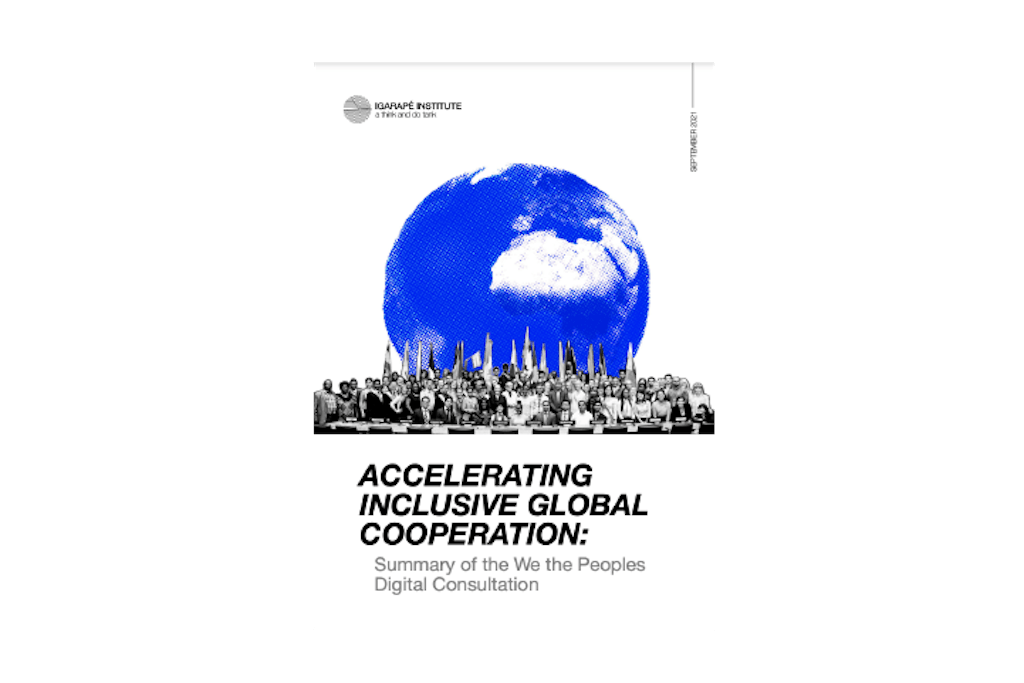
In keeping with the vision of more networked and inclusive multilateralism, the Secretary-General sought to consult widely with the “we the peoples” of our world.
To support this, the Igarapé Institute—a key partner working with the UN Foundation to shape Our Common Agenda—held a digital consultation to bring in the voices of non-governmental organizations, impact investors, philanthropists, parliamentarians, city leaders, academic institutions, and under-represented groups. The process generated 523 proposals from 1,759 participants from 147 countries.
Read the report
The UN Foundation commissioned research to contribute to Our Common Agenda, some of which has been published. Research reports on climate, health, and future generations helped inform the Secretary-General’s recommendations.
Our Common Agenda marks the beginning of a new era for the United Nations and for global governance. The United Nations Foundation is working with partners to track and support implementation of the Secretary-General’s recommendations.
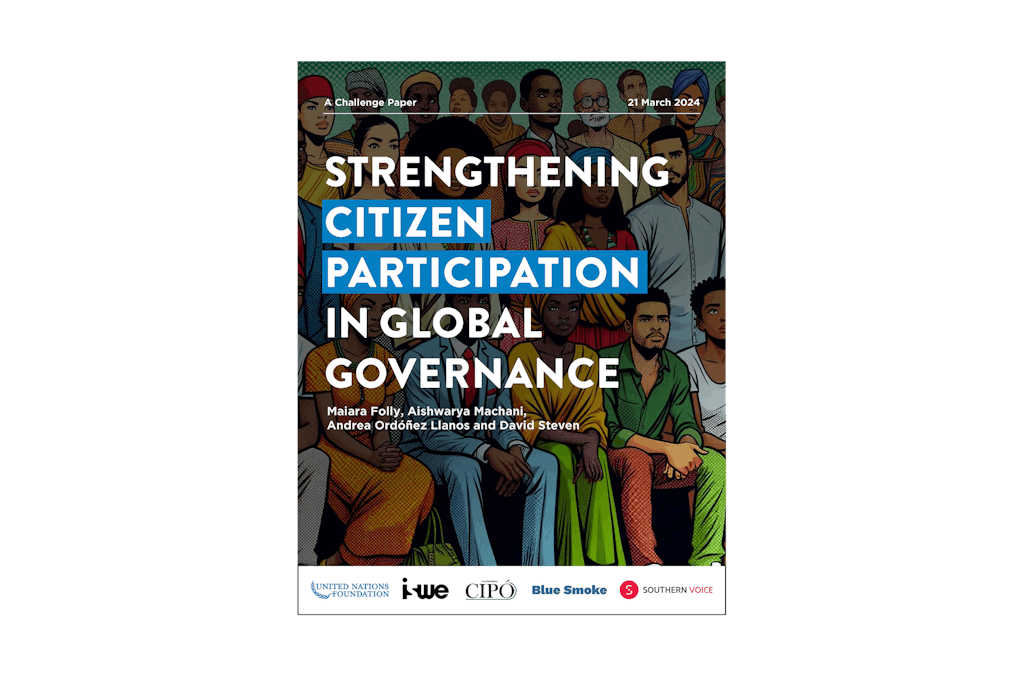
This challenge paper argues that the Summit of the Future in September 2024 should be used to move beyond piecemeal approaches to civic engagement.
The paper’s authors explore various options to enhance inclusivity and propose concrete recommendations for the Summit of the Future, as well as the next cycle of international cooperation.
Read the Paper